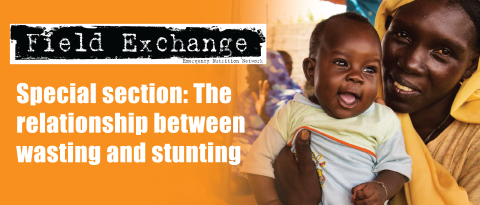Nutrition and climate change: a scoping review of current state of play Report Summary
This is a summary of the following report: Bush A, Wrottesley S, Mates E & Fenn B (2022) Nutrition and Climate Change - Current State of Play: Scoping Review. www.ennonline.net/nutritionandclimatechange
Climate change is one of the biggest challenges facing both current and future generations. In a world where undernutrition is declining very slowly and overnutrition is increasing rapidly, climate change will have severe and multifaceted effects on nutritional status and therefore on survival, health and development. Climate change and nutrition have overlapping agendas and enhanced collaboration could generate a common agenda for both communities.
This report presented the findings from a scoping review conducted by Emergency Nutrition Network (ENN) between January and November 2021. The review explored existing linkages between nutrition and climate change as well as examining if, and how, linkages could be strengthened and where related efforts to address climate change would be best placed. A series of 21 key informant interviews (KIIs) with stakeholders working in climate change and/or nutrition were conducted to gain an understanding of the available evidence, current activities, gaps and opportunities. Based on the focal areas identified during stakeholder engagement, the available literature was reviewed. The literature review was therefore thorough but not systematic and the evidence presented was not exhaustive. While it was recognised that climate change and nutrition were broad topics with links to many sectors, the themes, actions and gaps presented in the report were centred around health because the work of many key informants (KIs) focused on this sector and health was the main delivery platform for many nutrition interventions. Similarly, the findings concentrated on the impacts of climate change on nutrition outcomes, rather than those of nutrition on climate change, as these aligned best with the perspectives and experiences of both the KIs and ENN.
Findings
The report provided an overview of the international architecture around climate change and how this related to nutrition. It presented the evidence base for the effects of climate change on nutrition outcomes, outlined current actions linking nutrition and climate change and identified multiple opportunities for strengthening linkages between nutrition and climate change according to KIIs.
In summary, nutrition and climate change are inextricably linked through complex, multidirectional pathways. Populations vulnerable to the negative effects of climate change are also those most vulnerable to undernutrition – women, children and poorer, rural households, particularly those living in fragile and conflict-affected states. While interest in, and awareness of, the climate crisis is growing, efforts to combat it are not yet resulting in the required political action to limit global warming to agreed levels. Although many gaps remain, evidence for the negative effects of climate change on undernutrition is growing. It is predicted that the biggest threat to health from climate change is via undernutrition. Actions to strengthen linkages are currently limited but do appear to be increasing. Health and gender can provide useful entry points for integrating nutrition into global climate change conceptual frameworks and national level commitments. Future efforts need to focus on more holistic systems approaches to address the huge threat that climate change poses to achieving universal healthy sustainable diets and well-nourished populations.


